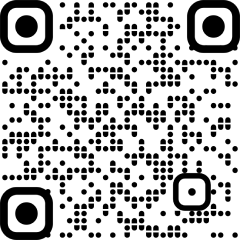
New Delhi: The aim of expanding health coverage to all aged 70 years and above under the Ayushman Bharat scheme is to address the distinct challenges faced by senior citizens and to reduce the economic vulnerabilities of this group, the Rajya Sabha was informed on Tuesday. Responding to a question, Union Health Minister J P Nadda said that on October 29, 2024, the government expanded Ayushman Bharat – Pradhan Mantri Jan Arogya Yojana (AB-PMJAY) to provide free treatment benefits of up to Rs 5 lakh per year to all aged 70 years and above, irrespective of their socio-economic status.
“The aim of this expansion is to address the distinct challenges faced by senior citizens, including limited access to affordable healthcare and a significant disease burden. Many elderly individuals suffer from chronic illnesses and disabilities, highlighting the urgent need for targeted healthcare interventions,” he said.
The initiative also strives to reduce the economic vulnerabilities of this group, as a substantial portion is no longer employed, leading to high dependency on others, Nadda said.
The enrolment of all eligible senior citizens aged 70 years and above is application-based, allowing beneficiaries to apply for and obtain their Ayushman Vay Vandana card.
Different modes of application are available for enrolment in the scheme, including mobile phone application (Ayushman app) and web portal (beneficiary.nha.gov.in), he said.
The feature of self-registration is also available in the mobile application.
For further enquiries about the Ayushman Vay Vandana card, beneficiaries can give a missed call to helpline 1800-110-770. A dedicated call centre (14555) is available 24×7 to provide assistance to the beneficiaries, Nadda elaborated.
Beneficiaries may visit any empanelled hospital to avail the benefits under this scheme, he said.
Nadda also said that Pradhan Mantri Arogya Mitras (PMAM) have been deployed at empanelled hospitals, who are responsible for guiding the beneficiaries and providing information related to prompt treatment.
Uniformly designed kiosks have also been deployed in these hospitals as the first point of contact for beneficiaries, offering awareness, assistance with card creation and support in accessing treatment, he said.
In the latest national master of the Health Benefit Package (HBP), the scheme provides cashless healthcare services related to 1961 procedures across 27 medical specialties including general medicine, general surgery, orthopaedics, cardiology, oncology, etc., which can be availed by different age groups.
Among these, treatment services like hemodialysis / peritoneal dialysis, acute ischemic stroke, accelerated hypertension, total hip replacement, total knee replacement, percutaneous transluminal coronary angioplasty, inclusive of diagnostic angiogram, single chamber permanent pacemaker implantation, double chamber permanent pacemaker implantation, etc., are available to eligible senior citizens as well, Nadda said.
Further, states have been provided flexibility to further customize the HBPs to local context.
The scheme ensures quality treatment for the beneficiaries. For this, various incentives are provided to improve the quality of healthcare services. To encourage the participation of public, private and corporate healthcare providers, empanelled hospitals are additionally incentivised for accreditation, the health minister said.
Incentives of 10 per cent and 15 per cent is provided to the hospitals with entry level NABH accreditation and full NABH accreditation, respectively, he said.
Hospitals which are imparting postgraduate education are also incentivized at the rate of 10 per cent over and above the base rate of HBP packaged master rates, Nadda said.







